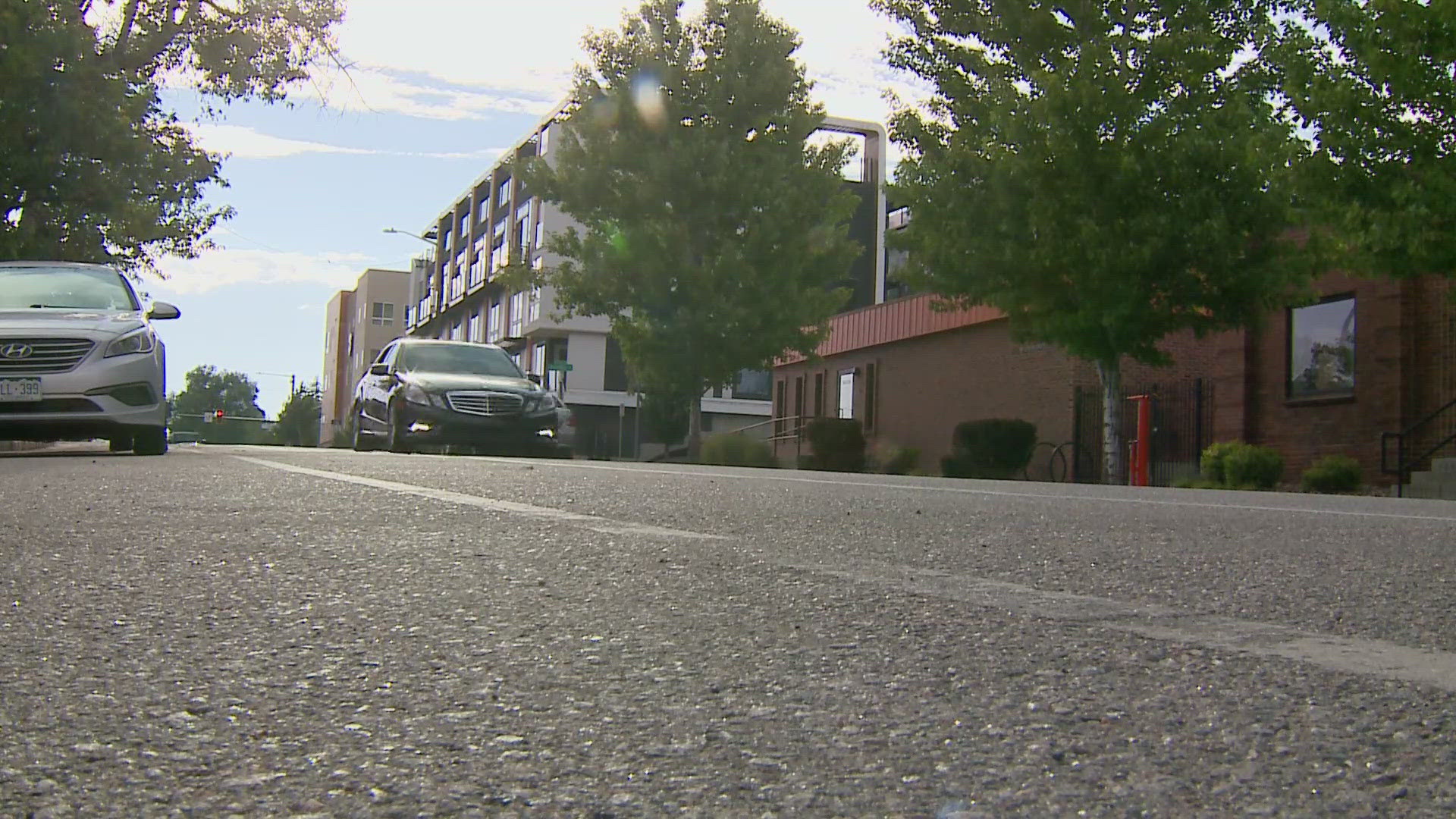DENVER — The Denver Department of Transportation and Infrastructure (DOTI) is considering adding a protected bike lane on a stretch of a busy street north of Sloan's Lake, effectively removing all of its street parking. Small business owners are now concerned about losing customers and the negative impact on their businesses.
The existing bike lane is unprotected, meaning it is simply painted on the road. The new proposal would add a physical barrier, which many cyclists would welcome due to the high-speed traffic in the area.
"Enabling a safe space for people to bike to nearby schools, businesses, and friends and family is immensely important," said Ben Shpurker, a cyclist who lives in the Highlands area.
This proposal is part of the city's plan to improve safety along W 29th Avenue from Sheridan Blvd to Federal Blvd. City data indicates this area has a higher volume of serious crashes. However, 9NEWS reviewed the city’s crash data dashboard, which zero bike or pedestrian-related crashes in the area since the existing bike lane was added in 2016.
The protected bike lane proposal would eliminate more than 200 parking spots.
"I specifically picked this location for my business because there was parking in the area, so now it just feels crushing to know that potentially might not be that way anymore," said Christina Trostel, owner of Salon Ostara on 29th Avenue.
After 24 years as a hairstylist, Trostel opened her salon in the Sloan’s Lake neighborhood two years ago in her hometown.
"We're vulnerable; we're a new business, so we're very much in that zone where every client counts," she added.
Long-standing businesses are also worried. Rise and Shine Biscuit Bakery, which has been at its Sloan’s Lake location since 2015, relies heavily on car traffic. Seth Rubin, the bakery's owner, said 90% of his customers arrive by car. If there is no parking on 29th Ave, customers and employees will have to park on the side streets.
Rubin, who delivers food to his restaurant every week, expressed concerns about the increased difficulty of transporting supplies.
"Bringing 450 pounds of flour, 15 cases of eggs, and numerous gallons of milk and buttermilk up that sidewalk would be quite a hardship," Rubin explained.
Both Rubin and Trostel emphasize they are not against bike safety and are actually advocates for it. However, their customers rely on the parking spots, and they hope for a compromise.
"If everyone came together and knew what was at stake for each side, I think there would be a compromise," said Trostel.
The city is taking the opportunity to implement safety improvements while repaving 29th Avenue this year. The proposed upgrades include two plans, Alternative #1 and Alternative #2, with the protected bike lane being part of the latter. Both plans feature other safety enhancements such as reducing the speed limit, installing speed bumps, and enhancing crossings at various intersections.
Business owners report that they were informed about a feedback open house hosted by the city's Department of Transportation, where they could provide input on the proposed upgrades. However, they said they received only 24 hours' notice, which many small business owners said was too short to accommodate.
It is unclear when decisions will be made regarding the proposal. Business owners say they have yet to receive a timeline.

